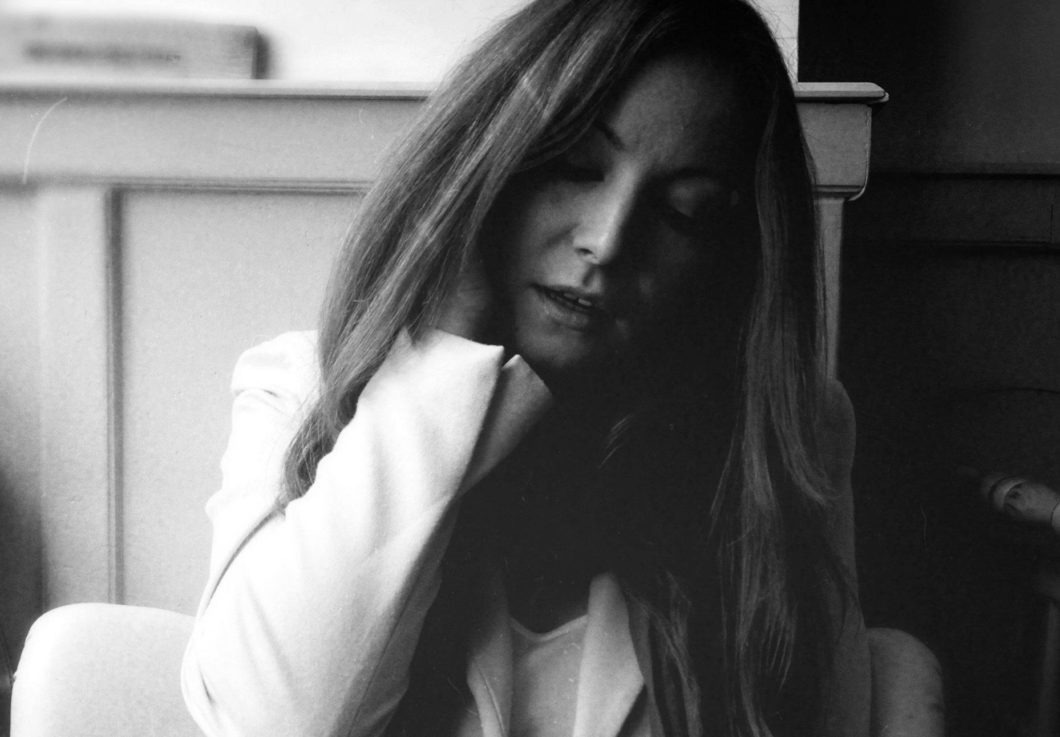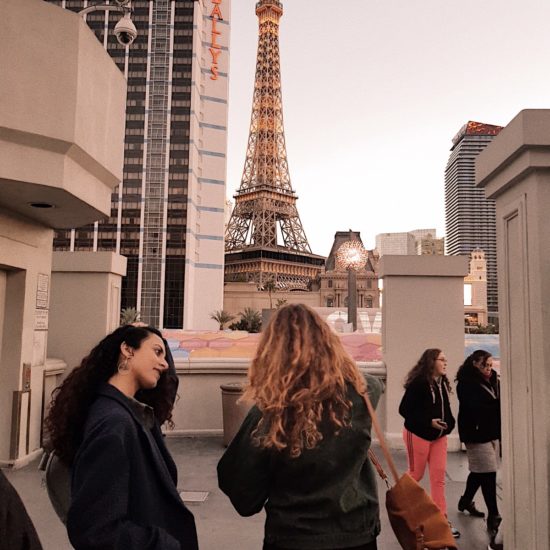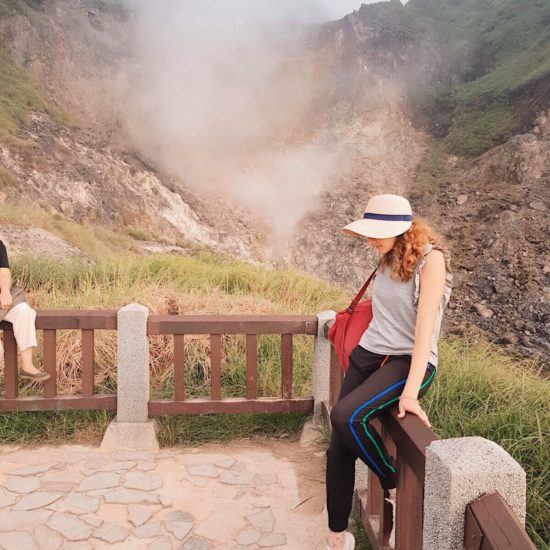I want to talk about a feeling that comes up for most of us from time to time, the one that cloys like sweet musk and has a weightiness that presses and lingers. It’s a feeling of longing, of time passing, of honey-soaked memories crystallized in time. It’s a bittersweet pill, one that tends to come more frequently with age, one that seems to affect us all differently, if we experience it at all. And it’s a topic that I’m always keen to investigate more deeply, which is what I’m doing today with the inspiring writer and photographer, Andra Stefan of Amsterdamming.
So if you haven’t guessed already (or if you didn’t read the title), the feeling I’m talking about is nostalgia. And after following the work of Andra for awhile now, I realized that this would be a perfect topic to talk to get her take on. That’s because Andra’s work is pure nostalgia. She has a knack for capturing specific moments in time and preserving them like pressed flowers. Her work is moving and wistful. It’s like taking a ride through her rose-tinted memories, the beauty and the rawness all there to see and explore. So when I asked Andra to participate in this interview, she was more than game. As she put it, “nostalgia is my middle name”.
So without further introduction, let’s dive deep into Andra’s experience with this multi-faceted feeling. As I expected, her responses were thoughtful and provoking. She talks about when she experienced nostalgia for the first time, what she does when it overcomes her, how moving far away from her homeland has affected her relationship with it, and more.
Give it a read and tell us about your relationship with this feeling over in the comments.
~

1. Do you have a recollection of the first time you experienced the feeling of nostalgia?
I did not know what nostalgia meant until my early twenties when my boyfriend at that time lent me a book with this name. Before starting the book, I looked the word up in the dictionary. I remember having a revelation. Everything I liked most was there, in that definition. Nostalgia could just have well been my middle name.
Even before knowing there was a name for this feeling, I had an impressive collection of nostalgic moments. The earliest of them are linked to my summer holidays in the Danube Delta.
Imagine a most isolated place, with no roads to drive, a land of water, reed, and willows, a paradise for birds and fish, an unfavorable place to make a living. This is the place where we would go every summer to stay in the house of our hosts, the Tarasov family. Life in the Danube Delta was rudimentary and days never seemed to end. My father would go fishing with Mr. Tarasov, my mother would cook with Mrs. Tarasov, my sister and I would play with the other children from the village, in the unbearable heat and the dust of Romanian summers. Daily activities included waving hands at the crew on ships heading to the sea, picking ripe fruits from the trees, chasing fireflies. At night, we would stare at the Milky Way, so clear and flawless in the darkness.
Leaving the Danube Delta and going back home was the hardest thing to do. I was inconsolable. I would spend the rest of the year reminiscing about the days spent by the Danube and anticipating the next time I would be there. These are my first records of longing. An acute sense of displacement, of being somewhere when somewhere else was where I wanted to be. These are also the most intense memories I have to date.

2. Where do you think the feeling comes from? What is at its root for you?
I think nostalgia comes from our need for belonging. This is an essential human need. There are moments in our lives – in certain places, with certain people, or when we’re alone – when we feel connected to ourselves and everything around us. Remembering these moments feels like coming home. They bring us to the safe place where we belong. We reconnect to them – and to us – by means of nostalgia.
But memories are life in the past tense and some argue it is both pointless and harmful to pay attention to a time that no longer exists. I believe differently. Reactivating special fragments of the past does not make the present and the future less appealing; on the contrary, it is the very structure of memories, the seducing mix of visuals, sounds, smells, textures even, that invites us to look at the world in a more intimate way, as if to create new moments worth remembering. It enables us with an intensity of perception and a rejection of everything ordinary.
I also think nostalgia comes from a true appreciation of life. When we realize just how temporary everything is, we want to hold on to what we consider our best moments. And it is these moments that fill us with gratitude for being alive, able to experience such an intensity of emotions.
“These are my first records of longing. An acute sense of displacement, of being somewhere when somewhere else was where I wanted to be.”

3. Your writing and images place a strong emphasis on capturing the fleeting and transient moments of life. I often feel a sense of longing and romanticism when reading your words or looking at your photos. Can you talk to me about that: is it intentional? What are you hoping to capture or put out there with your blog?
If it is not memorable, it is not worth it. This is how I look at the world. To be memorable – worth remembering – whether we are talking about a place, a conversation, or just an ephemeral image of a stranger in the train, it must appeal to the senses. It must trigger a reaction. It must make me feel something. When that happens, I know I am going to remember it. I might voluntarily bring it to the surface when in need, so as to indulge in that pleasure over and over again. Even more than my photography, my writing really is about capturing such moments and giving a voice to all these sensations. It is not intentional. It is the only way I know.


4. When you find yourself in the throes of romanticizing or longing for the past, what do you do? For example, do you try to ground yourself in the present or release those emotions? Do you let them flow through you?
I never shake it off, no matter how uncomfortable. Most of the time, it is this uncomfortable feeling that gives me the impulse I need to start writing and express what I feel. It is quite a funny process, I must say. It starts with me intensively thinking about something long gone, yet never lost. I either think about it because I am in the mood for that memory, or there is something in my surroundings that brings it to the surface. Whatever it is, I let it flow. I allow myself to feel it. Sometimes it brings peace and a smile. Sometimes it makes me ask myself a thousand questions. And that is when it becomes uncomfortable. Salvation comes through writing. Once it is out, black on white, I feel lighter. Next time that feeling gets a hold of me, I can deal with it better, because having written about it – having expressed it – gave me a certain degree of understanding and acceptance.

5. I read that the word “nostalgia” was coined by a Swiss medical student in the 1600s after studying Swiss mercenaries fighting in “foreign lowlands.” It was originally viewed as a disease, as a sort of extreme form of homesickness. I think this connection of nostalgia to one’s homeland is interesting, and I’m curious how living abroad has affected your relationship with nostalgia, if at all?
It does sound like a disease: anemia, neuralgia, nostalgia…
Jokes aside, there really is a strong connection between nostalgia and one’s homeland. It is what I was saying in the beginning, that nostalgia comes from the need of belonging. And where does one feel more at home than… home? Distance, whether in space or time, is a fuel for nostalgic feelings. I felt this myself, after moving to the Netherlands. I might not have felt so strongly about my Romanian memories had I not left Romania. Less access to the places where memories are located leaves room for more nostalgia.
But that is about my Romanian nostalgia. Has moving abroad influenced other aspects of it? I know I have always cherished special moments and recorded them by means of words and photography. As for the sense of longing, I think I was born with it. And yet, it is only in more recent years, perhaps the last five years or so, that I’ve become so infatuated with the world inside my head. Perhaps living in Amsterdam, the city where everything works, has allowed for more introspection, more focus on the delicate aspects of life. Now I feel it is up to me to bring this inner world to the surface and try to give it some permanence. Or it will be as if it never happened.
~
Thank you, Andra, for sharing with us.
And what about you? How does nostalgia manifest in your life? What do you do when the feeling arises? Share your thoughts in the comments, and do go check out Andra’s beautiful work on Instagram and on her blog.




